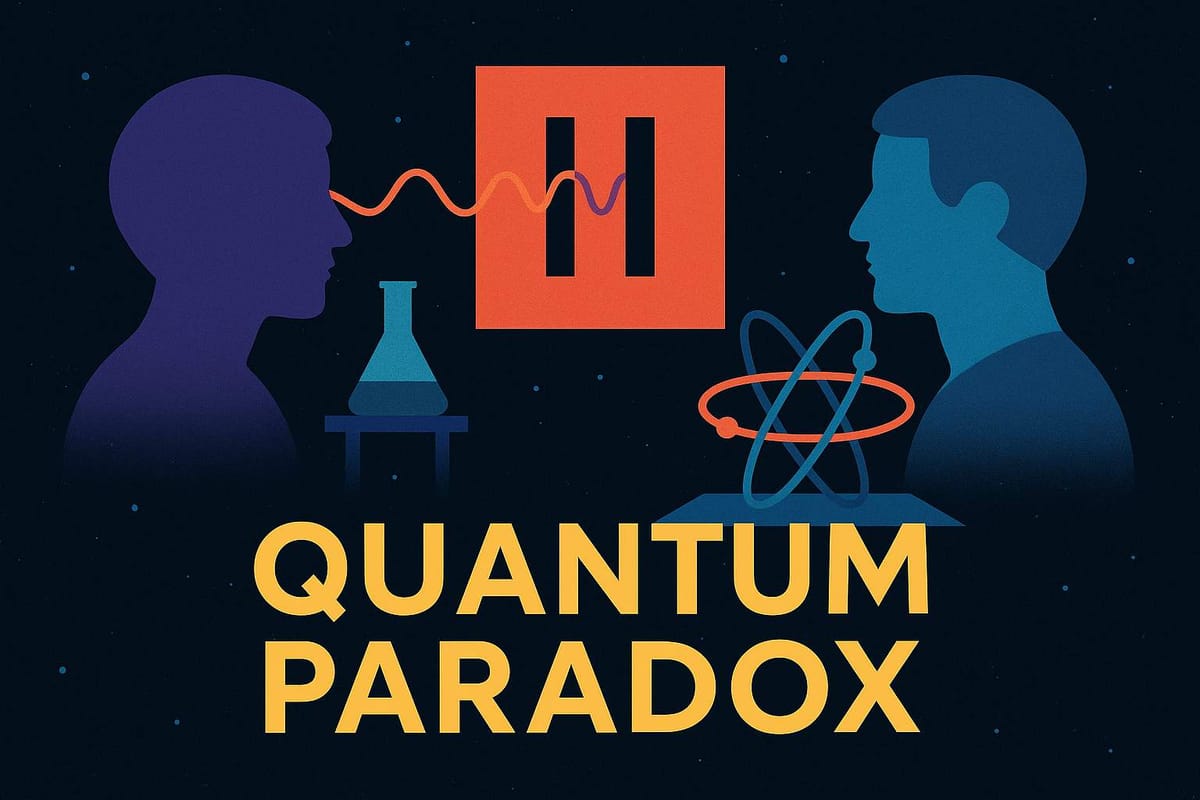New Quantum Paradox Challenges Our Assumptions About Reality

A team of physicists has uncovered a mind-bending quantum paradox that suggests reality itself might depend on who—or what—is observing it. Their experiment, published in Nature Physics, pushes the boundaries of what we thought we understood about measurement, objectivity, and existence.
The Paradox
At the heart of the study are three ideas that most of us assume are true:
- If you observe something, it really happened.
- Choices—like what to measure—are freely made.
- Distant events can’t instantly affect each other.
But quantum theory, which governs how tiny particles behave, doesn’t play by those rules. The researchers show that all three ideas can’t be true at once—unless quantum mechanics itself breaks down.
A Thought Experiment Gets Real
Building on the famous “Wigner’s friend” scenario, the team designed an experiment involving entangled photons (particles of light) and simulated observers. In the thought experiment, observers measure quantum particles, and later, other observers measure the entire setup, including the first observers.
Here’s the twist: from the outside, the first observers appear entangled with the particles they measured. This leads to conflicting versions of events. If quantum mechanics is right, it’s possible that what happened inside the lab was never objectively real—even if someone was there to see it.
Tested in the Lab
Using entangled photons and clever setups that mimic these thought experiments, the researchers confirmed the strange predictions of quantum theory. The result? A scenario where observers could disagree on what happened, and both be “right” from their perspective.
While this was only a proof of concept using simple systems, it hints at a troubling idea: objective facts might not exist in a universal sense. Reality could depend on your point of view—not metaphorically, but physically.
Why It Matters
This isn’t just a quirky quantum puzzle. It challenges the foundation of what we call a “fact.” If these results hold up in more complex experiments (possibly even involving AI as future “observers”), they could force scientists to rethink everything from the nature of consciousness to the limits of scientific knowledge.
In the end, the old question—if a tree falls in the forest and no one hears it, does it make a sound?—might have a new quantum twist: even if someone does hear it, whether it “really happened” might still be up for debate.
Articled adapted from The Conversation - https://doi.org/10.64628/AA.mgd7nnnq5.
